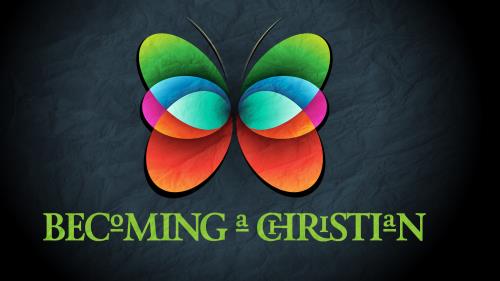-
The Descent Of The West From God: From Theism, Naturalism, To Nihilism And Existentialism
Contributed by Justin Steckbauer on Jul 20, 2022 (message contributor)
Summary: We see a slide taking place in regard to worldview. For human history some form of religion or deism was the chief worldview
We see a slide taking place in regard to worldview. For human history some form of religion or deism was the chief worldview. Yet over the history of humanity, we see the descent of human worldview, as if one were taking steps down a flight of stairs, from theism, the original underpinnings of western civilization, to deism, then into naturalism, and naturalism in turn gave birth to nihilism, and in response to the emptiness of nihilism, existentialism came to attempt to restore meaning. This is the descent from theism. We will consider the effects of this descent of worldview on contemporary humanity in western civilization, particularly the United States. We will see how the descent of worldview led to existentialism, and in turn existentialism split in two directions, one deeper into the abyss through the lenses of self, and one which led back toward God on uncertain footing. We will also see that nihilism and existentialism have a divided hold in the United States, vying for power and philosophical authority with the remnants of theism which previously held dominance in western civilization.
What is the trajectory taking place? First, we see theism, Christianity and Judaism and the influence they’ve had in western civilization. This worldview indicates that there is a creator of the cosmos, but not only that, he actively sustains the cosmos, has a moral right to judge the cosmos, and is personal and knowable by humanity. This is the perspective upon which documents like the declaration of independence and the constitution were founded. All humans have value because they are created by a personal God. Man should not murder. Man should not steal. Man should not commit adultery. These concepts were placed into the laws of the nation. Laws that make littering illegal, laws that make animal torture illegal, laws that make stealing illegal, laws that moderate speed limits on roads, laws that protect children, laws that mandate legal counsel for the accused, laws that make perjury illegal, all of these laws are built on the bedding one might say, of theism. God is moral. Humanity is moral. Humanity is made by God. All humans are equal and have basic intrinsic value. These are expressions of the theistic worldview being lived out in human society.
But then we see the descent to deism. If deism is true, there is a creator of the universe, however, this creator made the universe and simply disappeared. This creator has no current interaction in the universe. There are no miracles in which the creator intervenes in the universe. There is no final moral judgment. There is no heaven or hell. We can already see the effects that this worldview would have on laws and conditions of society. Is every human life sacred and equal if the only creator is one who created the universe and disappeared? Wouldn’t that perhaps lead to the conclusion that humanity is of little or no value, if the creator who made it desires no contact with the lifeforms he created? If that’s the case, why should humanity bar things like stealing or adultery or perjury or racketeering? Once one has lost the moral personal God and the value of humanity, this leaves deists to try to find the basis for absolutes and moral imperatives in nebulous concepts like natural law, and later, legal positivism. As soon as the moral personal God is removed, it’s as if we see an entire nation, buildings, people, land, animals, and water, being flooded away and off a cliff, like a dam has burst.
With naturalism we see the codification of the descent away from theism. Why even bother with any sort of deity? It isn’t needed. So here we find the concept that the only things that are real are the natural world, and human reason. There is no god. There is no spiritual realm. And the slide produced by the breaking of the dam truly surges in power in this departure from theism and deism. However, questions of morality, meaning, truth, and justice are largely left unanswered, or left to human reason, as the ultimate deducer of all things. But soon philosophers realized, “How can we trust human reason if there is no ontic referent?”
So next we see the development of the worldview of nihilism. Nihilism rejects all previous worldviews and regards itself as “the righteous and honorable resistance of a people crushed under an iron rule” (Gertz, 2019, p. 2). The iron rule being referenced are previous worldviews like theism and deism that often-regarded human nature as sinful or bad, or allowed for economic oppression or slavery (Gertz, 2019, p. 2-3). The solution to this problem of previous worldviews then, according to early Russian Nihilists, was to “destroy the society as a whole in order to build a new society out of whatever survived their destruction.”

 Sermon Central
Sermon Central



